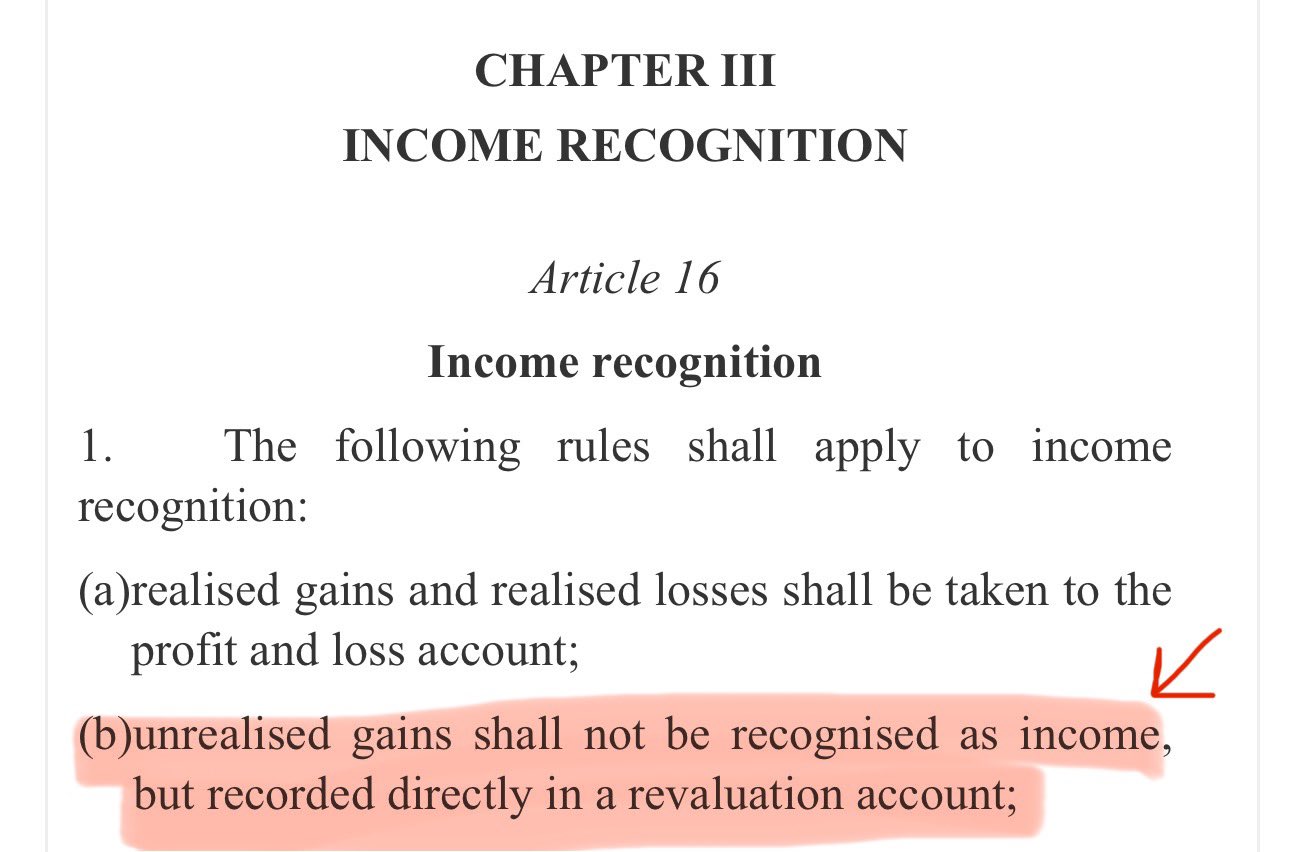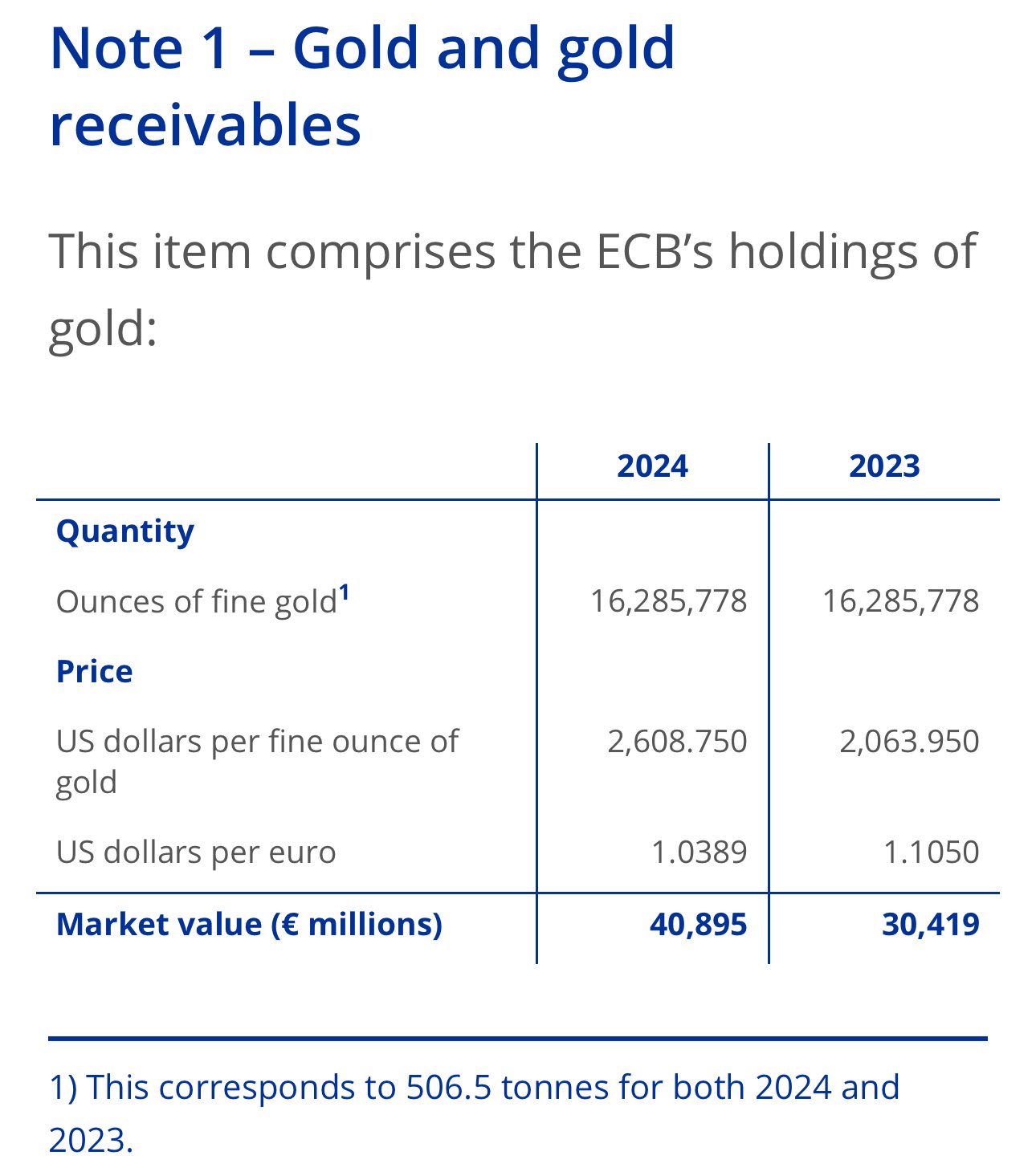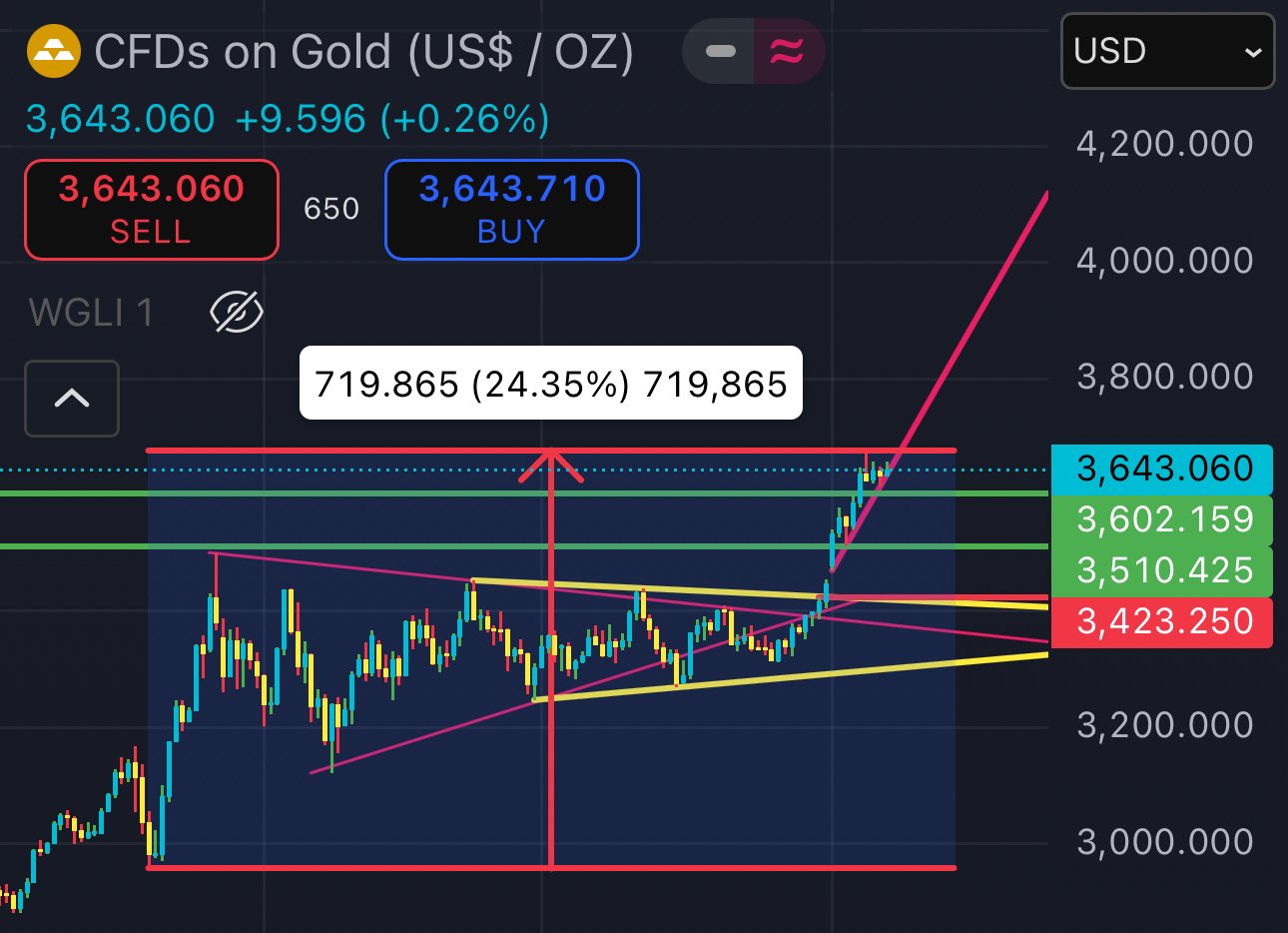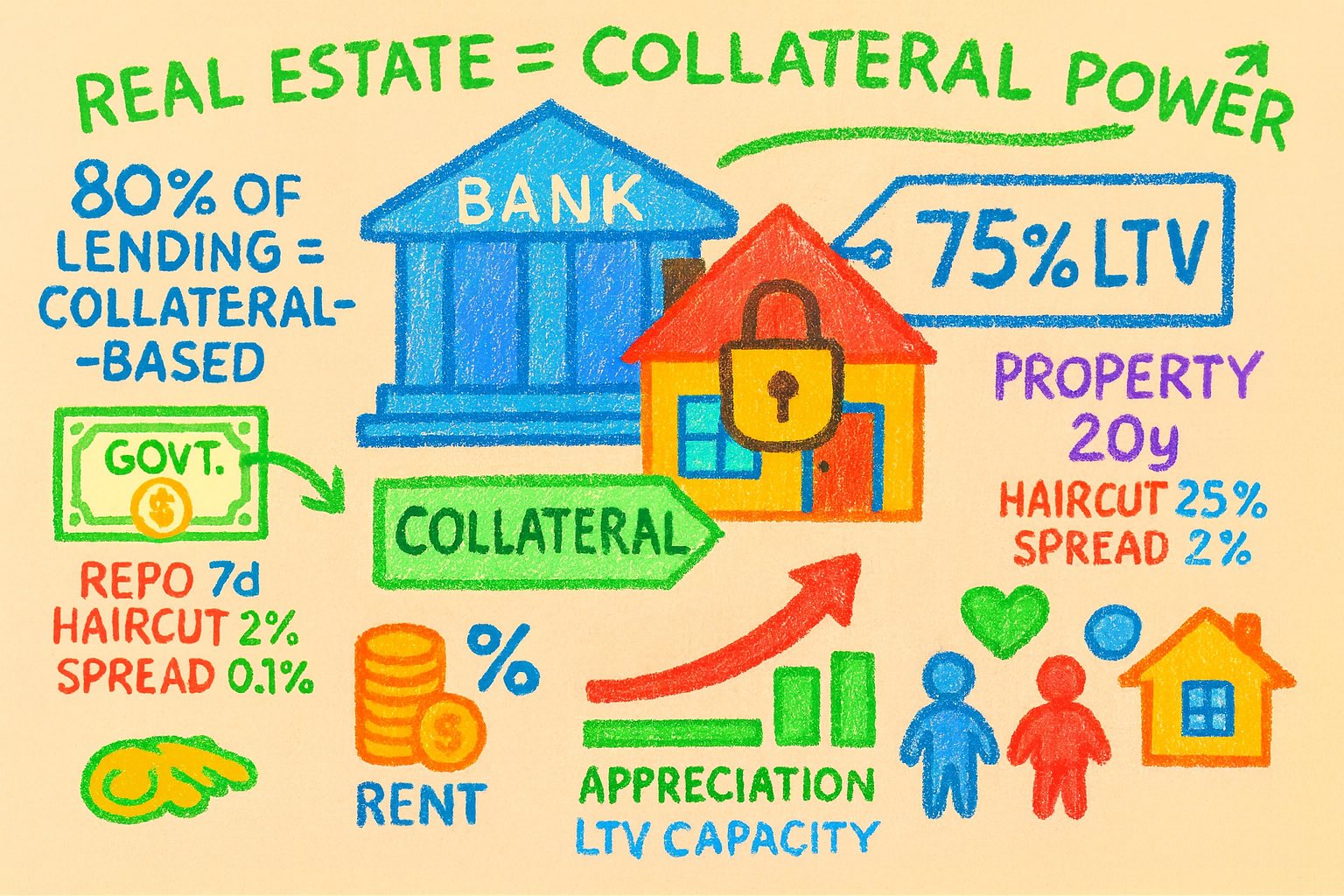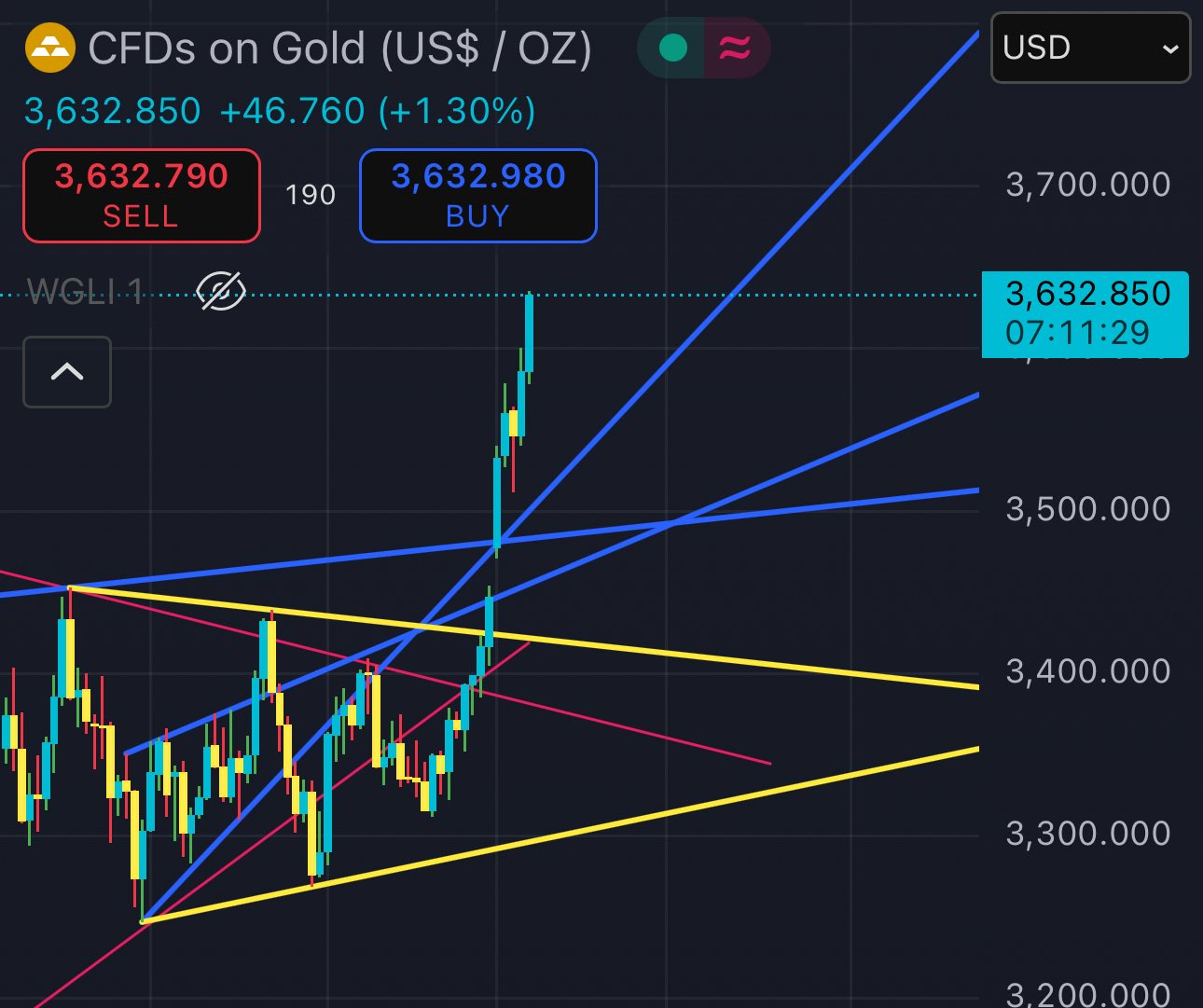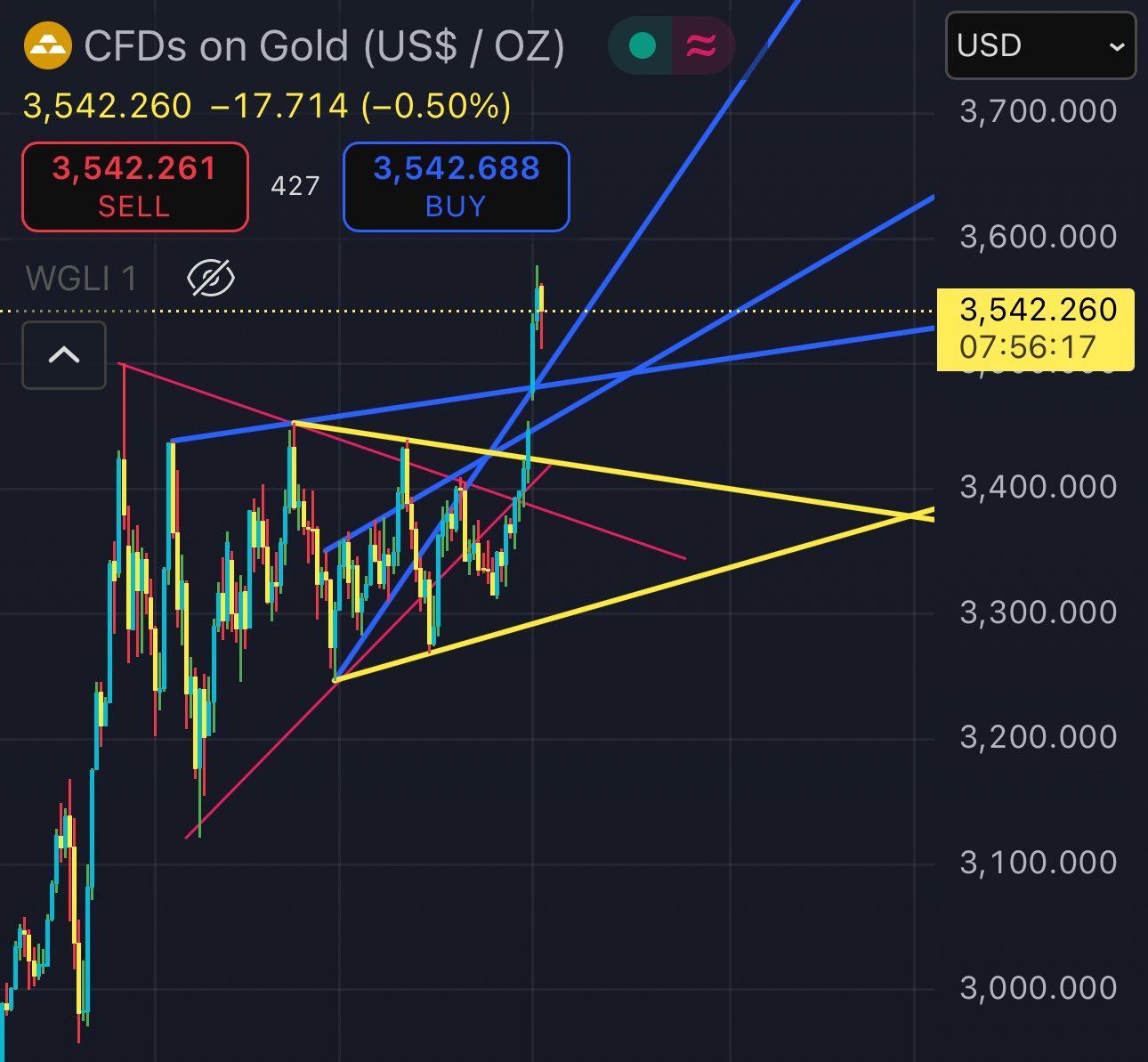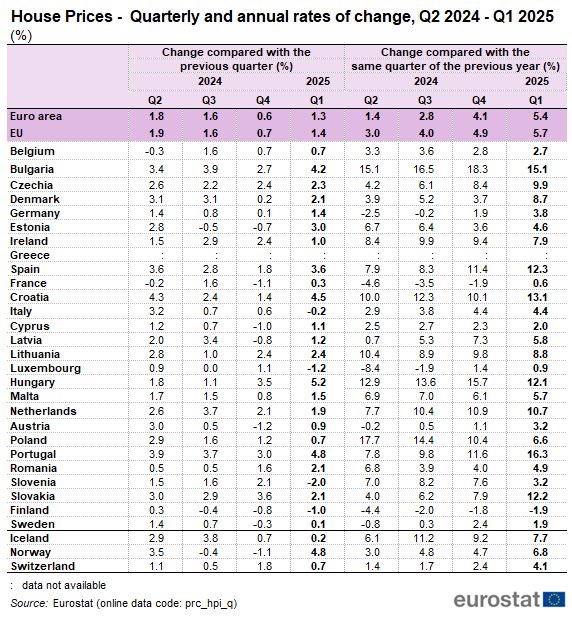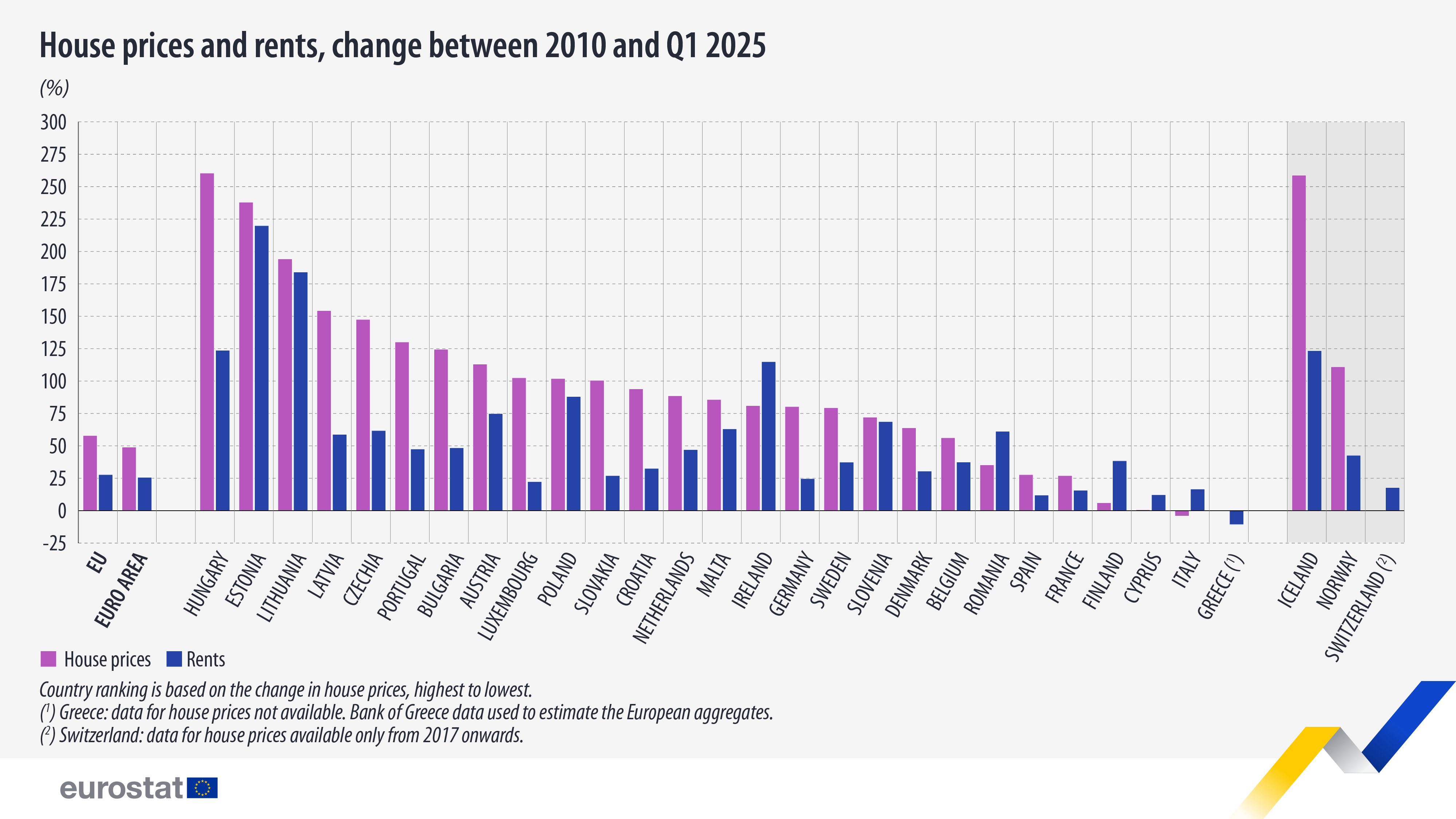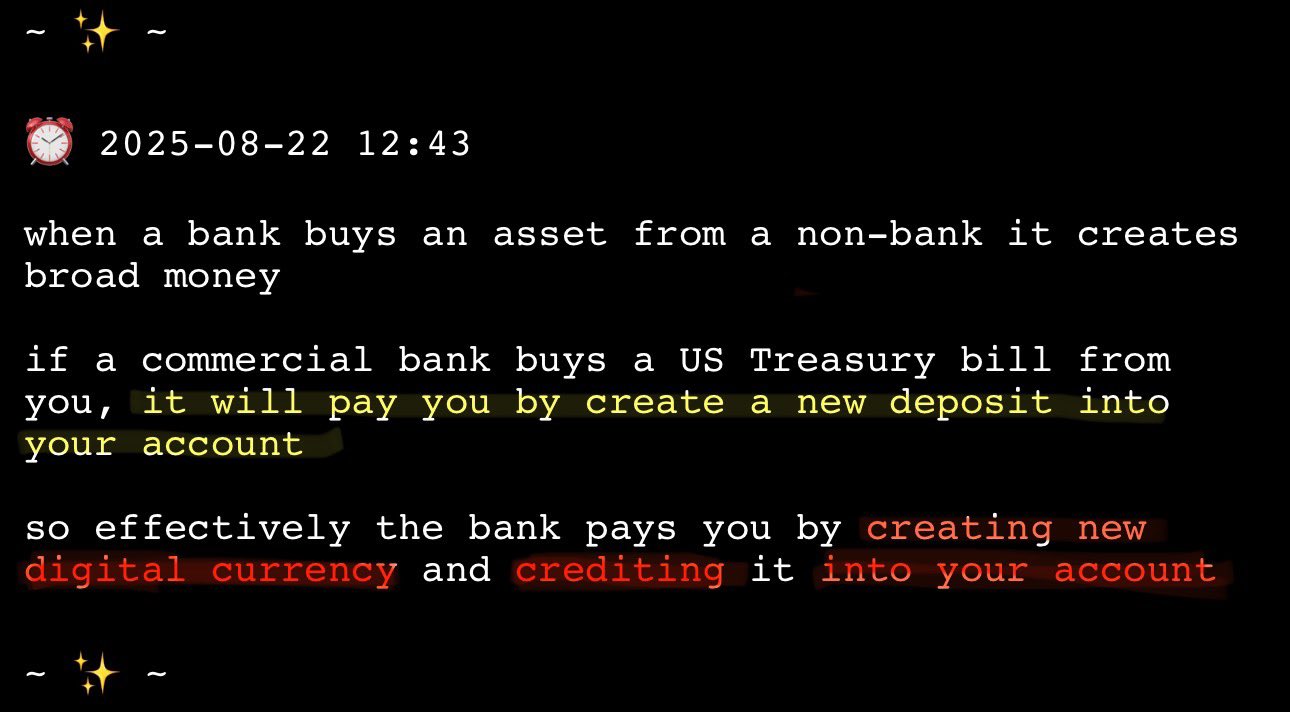
⬇️ My Thoughts ⬇️
ECB's legal framework forbids the use of gold revaluation proceeds to pay expenses or operating losses
unrealized gains are not recognized as income and are instead credited to the revaluation account
revaluation account is under liability/equity on the ECB's balance sheet
to clarify: European Central Bank didn't increase its gold holdings, but the gold that ECB already owns (≈506 tonnes) increased in value, since gold's market price increased
ECB reevaluates gold at the end of every year and credits or debits the revelation account accordingly
🇪🇺 ECB gained €10.5B on gold from 2023 to 2024
2025 YTD running gains add another net positive ≈€10B & likely to be higher by the year end's gold revaluation
that's an implied ≈8% yield on gold appreciation - much more than the ECB earned from other asset buckets
leverage and the carry trades eventually unwind
at some point there isn't enough on-demand liquidity and mass defaults, losses and insolvency occur
this is when the cycle tops/bubble pops

the financial system is heavily dependent on refinancing
this is true for both, governments and the public sector - especially the financial institutions
≈70% of all new credit is used for refinancing/repaying of existing maturing debt rather than novel financing
the financial system is heavily dependent on refinancing
this is true for both, governments and the public sector - especially the financial institutions
≈70% of all new credit is used for refinancing/repaying of existing maturing debt rather than novel financing

in addition to being a store of value, gold is also acting as an investment
it's up ≈40% YTD
this is gold catching up to inflation and accumulated leverage
in addition to being a store of value, gold is also acting as an investment
it's up ≈40% YTD
this is gold catching up to inflation and accumulated leverage

the financial system infrastructure, including monetary policies of the central banks are correlated
they're heavily exposed to the same set of assets - a lot of which are USD-denominated
this is of course extremely pro-cyclical
the financial system infrastructure, including monetary policies of the central banks are correlated
they're heavily exposed to the same set of assets - a lot of which are USD-denominated
this is of course extremely pro-cyclical

gold is a great asset to hold for the next 5 years
it's a hedge against the credit & refinancing bubble of the US equity markets + government debt
but not only against USD - all FIAT & risk assets including crypto
gold is a great asset to hold for the next 5 years
it's a hedge against the credit & refinancing bubble of the US equity markets + government debt
but not only against USD - all FIAT & risk assets including crypto
since i've written this, gold is up ≈16%
≈25% if you count from the tariffs announcements on April 7th
i will re-iterate that in order to protect the EUR the ECB should increase their onshore gold holdings

🇪🇺 The best countermeasure that EU can take is swapping US securities for Gold
Gold is inversely correlated with USD. Such a decision can be done today and it will:
1️⃣be a response to the US
2️⃣increase value of EUR
3️⃣minimize consumer impact
Anything else will hurt the economy
this makes immovable property a good hedge against inflation and economic downturn
price adjusts to value & while the composition of demand may change (e.g. shift towards smaller/cheaper units) - the demand for property will inherently remain high

given that housing is a core necessity for most combined with the willingness of banks to finance against immovable property creates a high persistent demand for real estate
given that housing is a core necessity for most combined with the willingness of banks to finance against immovable property creates a high persistent demand for real estate

as the immovable property appreciates, so do your assets and financing capacity. with a more valuable collateral asset - the bank will give a larger loan
increasing real estate purchase prices push rent prices up as well. so may increased interest rates, since it's harder to buy
as the immovable property appreciates, so do your assets and financing capacity. with a more valuable collateral asset - the bank will give a larger loan
increasing real estate purchase prices push rent prices up as well. so may increased interest rates, since it's harder to buy

so by using real estate as collateral you're just tapping into the existing low interest liquidity/credit line
at the same time the property earns a yield (e.g. via rents) and generally appreciates
so by using real estate as collateral you're just tapping into the existing low interest liquidity/credit line
at the same time the property earns a yield (e.g. via rents) and generally appreciates

this is why a 7 day Treasury bill-backed repo agreement may have 2% haircut and a 0.1% spread, while a 20 year immovable property collateralized loan a 25% haircut and a 2% spread
the T-bill is more liquid, less volatile and the loan term is much shorter
this is why a 7 day Treasury bill-backed repo agreement may have 2% haircut and a 0.1% spread, while a 20 year immovable property collateralized loan a 25% haircut and a 2% spread
the T-bill is more liquid, less volatile and the loan term is much shorter

collateralized lending comes with smaller interest rates/financing cost because it's low risk for the lender
if you default - the lender keeps your collateral
haircuts and spread are set sufficiently high to cover liquidity, term and market risks
collateralized lending comes with smaller interest rates/financing cost because it's low risk for the lender
if you default - the lender keeps your collateral
haircuts and spread are set sufficiently high to cover liquidity, term and market risks

≈80% of lending in financial markets is collateral-based
financial institutions use government bonds as collateral for short-term loans
you're using immovable property as collateral for a generally longer term-loan
≈80% of lending in financial markets is collateral-based
financial institutions use government bonds as collateral for short-term loans
you're using immovable property as collateral for a generally longer term-loan
real estate is a great asset because banks lend ≈75% of its value
so if your property is worth $100K, you can borrow $75K against it at a low rate
the immovable property is used as collateral
just as charted: with the yellow line resistance broken gold has risen over 6%
this thread covers the whole consolidation move, where i explained how it's a bullish precursor
the original goal of this thread was to follow gold until it breaks $3.5K, and now we're 0.15K above 😄
remember that real estate runs on credit - and in the most basic approach - the bank happily finances 75% of the value of the property. this is true even if you're just starting
as you accumulate collateral/properties it becomes easier and easier, as you can cross-collateralize
this increase will be more accentuated in lower per-capita GDP countries - as cross-border capital flows in to fill the price gap
lower GDP + highly desired location is the recipe for higher yields 😄
you can observe this in countries like Portugal in the table below
EU real estate prices will continue to increase
with investment capital moving away from US to the EU, a significant portion of it will will flow into housing, thus pushing sale and rent prices up
specially true for high-demand areas, like coastal & large cities
i wrote a thread explaining the business model of banks here: https://illya.sh/threads/@1755863018-1.html
the information in it is important to understand the balance sheet dynamics of gold reevaluation

in order to understand the mechanics of gold revaluation - it's important to understand the unique legal position of banks to issue broad money, and that their mode of operation differs greatly from non-credit issuance businesses
in order to understand the mechanics of gold revaluation - it's important to understand the unique legal position of banks to issue broad money, and that their mode of operation differs greatly from non-credit issuance businesses

soon i'll write a thread on how central banks/governments reevaluate gold and how the monetary gains can be used to cover central bank and/or government debt
i'll add a link to it in this thread once it’s ready
soon i'll write a thread on how central banks/governments reevaluate gold and how the monetary gains can be used to cover central bank and/or government debt
i'll add a link to it in this thread once it’s ready

in practice, some level of sanitization (direct or indirect) will occur, and that Treasury debt/safe collateral would likely be reintroduced back via Treasury issuance and/or Fed facilities within a year
in practice, some level of sanitization (direct or indirect) will occur, and that Treasury debt/safe collateral would likely be reintroduced back via Treasury issuance and/or Fed facilities within a year

so assuming no sanitization - an initial reduction of liquidity may occur
